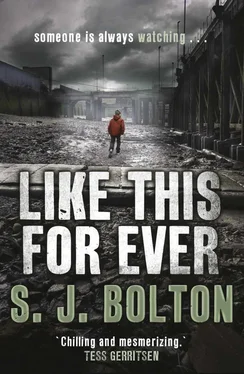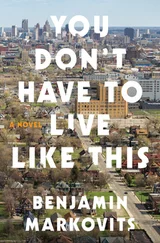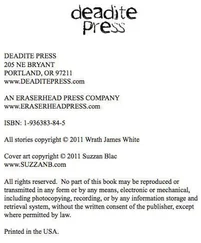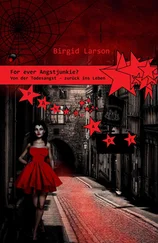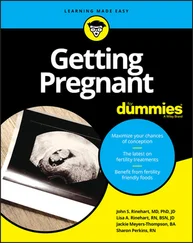Sharon Bolton - Like This, for Ever
Здесь есть возможность читать онлайн «Sharon Bolton - Like This, for Ever» весь текст электронной книги совершенно бесплатно (целиком полную версию без сокращений). В некоторых случаях можно слушать аудио, скачать через торрент в формате fb2 и присутствует краткое содержание. Год выпуска: 2013, ISBN: 2013, Издательство: Windsor, Жанр: Старинная литература, на английском языке. Описание произведения, (предисловие) а так же отзывы посетителей доступны на портале библиотеки ЛибКат.
- Название:Like This, for Ever
- Автор:
- Издательство:Windsor
- Жанр:
- Год:2013
- ISBN:9780552166379
- Рейтинг книги:5 / 5. Голосов: 1
-
Избранное:Добавить в избранное
- Отзывы:
-
Ваша оценка:
- 100
- 1
- 2
- 3
- 4
- 5
Like This, for Ever: краткое содержание, описание и аннотация
Предлагаем к чтению аннотацию, описание, краткое содержание или предисловие (зависит от того, что написал сам автор книги «Like This, for Ever»). Если вы не нашли необходимую информацию о книге — напишите в комментариях, мы постараемся отыскать её.
Like This, for Ever — читать онлайн бесплатно полную книгу (весь текст) целиком
Ниже представлен текст книги, разбитый по страницам. Система сохранения места последней прочитанной страницы, позволяет с удобством читать онлайн бесплатно книгу «Like This, for Ever», без необходимости каждый раз заново искать на чём Вы остановились. Поставьте закладку, и сможете в любой момент перейти на страницу, на которой закончили чтение.
Интервал:
Закладка:
‘Neither DC Flint nor DI Joesbury are at their respective flats, Ma’am,’ called Stenning from across the room. ‘DI Joesbury’s still not answering his phone.’
Dana acknowledged Stenning with a nod. ‘I think we have to assume DC Flint and DI Joesbury are pursuing their own independent investigations,’ she said. ‘Let’s hope they’re together and at least stand a chance of keeping each other out of trouble. In the meantime, if Barney is the one we’re looking for, it seems safe to assume he’s gone to wherever he’s been keeping and killing the boys. If we find Barney, we find Huck.’
The entire complex was in darkness. But Lacey knew she’d often seen Barney and his mates in the yard after the centre had closed. In fact, hadn’t Jorge, less than an hour earlier, told her he’d just been inside?
The heavy gates were padlocked. The brick perimeter wall was around five feet high, but iron railings on top of it took it up well above her head.
If Barney and his mates could get inside, she could.
At the corner of the street, the railings gave way to the outside wall of the outbuildings. Round the corner, the street was both narrower and quieter. It was still difficult to see a way in. The outbuildings were single-storey, with steeply sloping tiled roofs and no obvious way over them. Lacey followed the wall to the end and turned the next corner.
This time she was in an alleyway between two streets. No one around. Plenty of shadows. Lacey found her breathing escalating. She’d spent weeks telling herself nothing could scare her any more. Was she about to find out that she was wrong?
On this side there was another door. Unlike the wide iron gates at the front of the yard, designed to allow vehicles to drive right inside, this one was a pedestrian access only. Lacey stretched out a gloved hand to try the handle. Locked, of course, but to the right of the door one of the railings had broken away, leaving a narrow gap.
Lacey jumped down into one of the darkest corners of the yard. All seemed still. No sound came from beyond the outer walls except the ordinary night-time percussion of London. OK, Barney could not be in the main building. It was used for twelve hours or so every day. People were constantly coming and going in every part of it. There was no way abducted children could be hidden in there.
What about the outbuildings?
Four doors faced on to the yard. Each shed had a small window, set high in the wall. Switching off her torch, relying only upon the light from the streets, Lacey made her way towards the first shed. And with every step, the fear she thought she’d left behind for ever was growing.
There were too many hiding places. Too many shadows. Beneath the skateboard ramps, around corners, even inside a collection of plastic Wendy houses by the main doors. Children could hide anywhere. They could squeeze their bodies into the smallest spaces.
The outbuildings were definitely the most likely place. In the young children’s play area Lacey found a plastic cube that would bear her weight. Balanced on it, she could see through the window that the first shed was packed to the roof with piles of chairs, stacked trestle tables, cardboard boxes. She’d struggle to open the door, never mind move around inside. Nevertheless, she tried. Locked.
The next was full of sports and games equipment, outdoor stuff that wouldn’t be needed until the spring. Locked like the first. The third shed looked like the overspill of a busy office. Two desks were piled high with books and files. Filing cabinets lined one wall. Paper littered the floor. Black bin-liners, close to bursting apart, were piled in one corner. The door was locked.
The fourth and last shed in the line had been used as a workshop. Against the far wall was a long Formica counter, interrupted only by an old-fashioned Belfast sink. An immersion heater was fixed to the wall. Empty paint tins lay along the counter. There were woodworking tools, saws, hammers fixed to the walls. Locked like the rest. And, like the rest, quite plainly no one was inside.
Lacey felt panic rising up again. Panic that would creep into her thoughts and throw them off kilter, stealing away her ability to think straight. She couldn’t give into it. Not yet. Victorian buildings nearly always had cellars.
She started to move again, looking down for the telltale ventilation grates or the reinforced opaque glass squares that allowed daylight to reach underground. Nothing around the outbuildings. Nor around the main factory building either. There was no way of getting inside to check. Time to face facts: there was nothing more she could do on her own.
Lacey pulled her borrowed mobile from her pocket. Unsure who to call first, Mizon or Joesbury, she hesitated as a flickering of light caught her eye. She looked up. There it was again. A light inside the building, in an upstairs window? Gone. Shit, had she seen it or not?
Lacey ran straight at the skateboard ramp and let the momentum take her up. At the top, from where Barney and his friends regularly launched themselves into the night, she could almost see through the upper windows. All seemed dark. Then the flickering began again – which was nothing, after all, just the reflection of a malfunctioning lamppost in the next street along, and time was running out.
The lamppost started flashing again, drawing her attention to the building immediately behind it. A derelict Victorian house, large and square, with ornate red brickwork, very similar in architectural style to the community centre. She’d walked past it many times, could even remember when it had housed local council offices. Once officialdom had moved out, it had become a hang-out for drug addicts and homeless people, until complaints from local residents had resulted in tighter security and regular police inspections. She’d even visited it herself once, back when she’d been in uniform.
It was taller than the houses in the adjacent streets, taller by a whole storey than the community centre, and the upper windows looked directly into the yard. Into Neverland.
Movement at Dana’s side made her glance up from the computer screen. Susan Richmond was approaching with two mugs.
‘May I?’ she asked, indicating the vacant seat.
‘Of course,’ replied Dana. ‘You know, I’m still not sure.’
‘About what? About the killer being a child?’
Dana shook her head. ‘Lacey’s a bright officer,’ she said, ‘but she’s impulsive. Gets an idea and has to act right away. She doesn’t necessarily think things through. If we’re looking for a child who doesn’t want to grow up, how do the multiple cuts fit in?’
Richmond thought for a second. ‘You mean if he wanted the kids dead, he’d just want to get it over with as soon as possible?’
‘Exactly. The multiple cuts suggest to me it’s about the cutting. The cutting is what he gets off on.’
‘The important thing is, he didn’t kill any of the other boys the first night. We still have time.’
‘Ma’am.’ Anderson had approached. ‘For what it’s worth, we know who our mole was.’
Dana had forgotten all about the mole, that someone had been feeding information to Bartholomew Hunt.
‘That was the pathologist, Mike Kaytes, on the phone,’ said Anderson. ‘He’s working late on another case and found a half-finished email his nerdy young assistant Troy was writing before he got called away. Guess who it was to?’
‘Hunt?’ tried Dana.
‘Bang on. Turns out Hunt is young Troy’s mother’s cousin. He admitted everything when Mike pressed him. He’ll be instigating disciplinary proceedings in the morning, he just wanted us to know.’
‘Thanks, Neil.’
‘Doesn’t really seem that important right now, does it?’
Читать дальшеИнтервал:
Закладка:
Похожие книги на «Like This, for Ever»
Представляем Вашему вниманию похожие книги на «Like This, for Ever» списком для выбора. Мы отобрали схожую по названию и смыслу литературу в надежде предоставить читателям больше вариантов отыскать новые, интересные, ещё непрочитанные произведения.
Обсуждение, отзывы о книге «Like This, for Ever» и просто собственные мнения читателей. Оставьте ваши комментарии, напишите, что Вы думаете о произведении, его смысле или главных героях. Укажите что конкретно понравилось, а что нет, и почему Вы так считаете.
